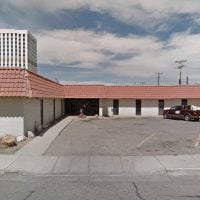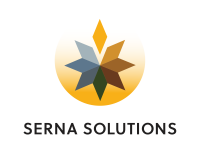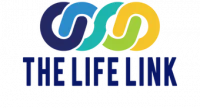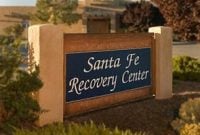Life Healing Center
Drug Rehab Center in Santa Fe, New Mexico
Life Healing Center is a 40-bed residential long-term addiction and mental health treatment center in Santa Fe, New Mexico, offering a variety of evidence-based treatments and fully accredited by CARF, NAATP and the State of New Mexico to help clients on their journey to lasting recovery.
About This New Mexico Facility
Life Healing Center is a residential treatment facility in Santa Fe, NM that offers individualized and comprehensive treatment for a range of issues and addictions. With four levels of care, from detox to partial hospitalization and inpatient services, Life Healing Center is able to meet the needs of many people. They offer evidence-based practices such as cognitive behavioral treatment, dialectical behavioral therapy, eye movement desensitization and reprocessing, family therapy, group therapy, trauma therapy, individual therapy, experiential therapy, animal therapy, creative arts therapy, equine therapy and acupuncture.
At Life Healing Center, clients receive the highest quality of care and support through the 40 beds available. The facility is accredited by CARF, NAATP and state license and they accept private health insurance coverage. They also provide resources to assist clients in making a successful transition back into the community. Clients can also continue their care with Life Healing Center’s aftercare program. Ultimately, with the individualized care and multiple services offered by the staff, Life Healing Center can help clients move forward on their journey towards long-term recovery.
Genders
Ages
Modality
Additional
Accreditations
State License
NAATP

CARF
The Commission on Accreditation of Rehabilitation Facilities (CARF) is a non-profit organization that specifically accredits rehab organizations. Founded in 1966, CARF's, mission is to help service providers like rehab facilities maintain high standards of care.
Conditions and Issues Treated
Levels of Care Offered at Life Healing Center
This center offers a variety of custom treatment tailored to individual recovery. Currently available are Detox, Inpatient, Partial-Hospitalization, with additional therapies available as listed below.
Detox is the stage of recovery where the drugs or alcohol are entirely removed from your body. There are two different ways to detox, with medications and without. For many drugs and alcohol, the acute phase of detox can be completed in a number of days.
Inpatient treatment is the most intensive level of care, and it’s necessary for those who aren’t able to control their addiction. These patients also must be drug-free before attending inpatient programs .
During inpatient treatment, addicts live at an inpatient facility 24 hours a day while receiving help. This type of program is generally recommended for those who need to go through detoxification or who are struggling with serious addiction-related issues.
A Partial Hospitalization Program (PHP), also known as an Aftercare Program, is a short-term intensive treatment program usually consisting of five (5) days a week. A PHP can be an effective alternative for those who cannot commit to living in a rehab facility 24/7 but require daily medical supervision. A PHP provides comprehensive addiction services seven (7) days a week and is usually attended by the addict every day.
This allows addicts to continue working, stay close to their family and friends, and minimize disruptions to their daily routines. Upon entering a PHP, patients are assessed by Addiction Psychiatrists, Medical Doctors (MD), Nurses, Psychologists, and Therapists. This assessment will determine the appropriate level of care.
Although PHP’s are similar to residential programs, they lack 24-hour supervision. This is because aftercare patients are still expected to follow the rules of their recovery and meet specific goals. This will allow them to assimilate back into society without relapse.
Therapies & Programs
People in addiction recovery can benefit from individual therapy. This type of therapy involves meeting with a therapist one-on-one. This allows for a personal and trusting relationship to be built so that the patient can be truly themselves and express any emotions they feel. Individual therapy leads to greater understanding and peace about your triggers for addiction and coping strategies to prevent relapse.
Family therapy is a type of group problem-solving that aims to improve communication and relationships between the patient, their family, and sometimes friends. The main goal of family therapy for drug addiction is to create an environment where communication can occur without judgment, hostility, or blame. The therapist is with the family as they learn to communicate with each other differently, especially with the addict when s/he is using.
Group therapy sessions are held in rehab facilities, clinics, churches or community centers that offer drug addiction treatment. People who attend these groups are encouraged to voice their feelings and support other addicts in recovery. This helps group members strengthen their own recovery program while cheering on others who are struggling with sobriety.
Group therapy sessions provide recovering addicts with a chance to cope with everyday situations that many face. Group therapy sessions are held in rehab facilities, clinics, churches or community centers that offer drug addiction treatment.
People who attend these groups are encouraged to voice their feelings and support other addicts in recovery. This helps group members strengthen their own recovery program while cheering on others who are struggling with sobriety.
If you’re looking for addiction treatment, it’s important to find a facility that offers trauma therapy. This type of therapy helps people process and understand the past traumas that have led to their addiction. Trauma therapists will work with clients to help them understand their past and present relationships and show them that they are worthy of love. This therapy is typically done using visualization, discussion, and writing down thoughts and feelings.
Trauma Therapy is a form of therapy that involves working with a patient to help them process and understand the past trauma(s) in their life. This therapy is typically done using techniques such as visualization, discussion, and writing down thoughts and feelings. The main goals of trauma therapy is to help clients express their emotions and talk about what they are feeling.
Dialectical Behavior Therapy (DBT) is a form of cognitive-behavioral therapy that helps people understand how they connect their thoughts, behaviors, and feelings. It can give them more control over their actions, effectively stopping self-harm ideations and attempts in some patients. It also helps put those with borderline personality disorder into control for managing mental struggles.
A new study has shown that DBT works for those with self-harm behaviors and addictions by giving them therapy they can relate to and understand.
Cognitive Behavioral Therapy (CBT) helps addicts identify faulty, negative thinking so that they can work together with the therapist to find healthier ways of thinking. CBT focuses on specific aspects of each person’s thinking, feeling, physiology, and behavior. It aims to identify specific problems in these areas, and create a personalized treatment strategy.
Eye Movement Desensitization and Reprocessing (EMDR) is an integrative psychotherapy approach that has been extensively studied and proven effective for treating trauma. EMDR sessions typically last 50-90 minutes and can be completed in as little as 12-15 sessions. EMDR is a goal-directed therapy in which the client works with the therapist to develop an individualized treatment plan that focuses on specific trauma memories and associated disturbance.
Patient Experience
Creative Arts
Creative Arts Therapy is a treatment method for patients of Life Healing Center in Santa Fe, New Mexico who are victims of addiction to drugs, alcohol, or other substances. Group Creative Arts Therapy sessions help addicts get sober by allowing them to meet and talk with peers who are going through the same problems. This builds trust and helps addicts understand that they are not alone. Depending on the severity of the patient’s drug or alcohol problem, they may attend group creative art therapy sessions or individual sessions.Experiential Therapy at Life Healing Center
Experiential Therapy allows addicts to release emotions in a safe environment. The process involves addicts painting their feelings and releasing them on a canvas. LPE – Love, Peace, and Equilibrium is one of the most popular forms of experiential therapy.
Equine Therapy at Life Healing Center
Just spending time with a horse can provide a person with significant psychological benefits due to their unique ability to encourage unconditional love and acceptance in people. The calming presence these animals provide is invaluable to many people dealing with addiction and mental health disorders.
Payment Options Accepted
For specific insurance or payment methods please contact us.
Is your insurance accepted?
Ask an expert, call (888) 674-0062
Additional Details
Specifics, location, and helpful extra information.
Santa Fe, New Mexico 87508 Phone Number(505) 322-6881 Meta DetailsUpdated November 25, 2023
Staff Verified
Patient Reviews
There are no reviews yet. Be the first one to write one.
Santa Fe, New Mexico Addiction Information
New Mexico has been one of the leading states in the nation when it comes to drug and alcohol use, abuse, and addiction. Opioids are responsible for over 60% of all drug-related overdoses in New Mexico. Alcohol-related deaths in New Mexico are the highest in the nation and almost twice the national average since 2000.
In Santa Fe, NM, 7 out of every 100 people aged 12 or older were dependent on illicit drugs from 2008-to 2009. Marijuana, cocaine/crack, inhalants, and methamphetamine are some of the most common addictions. As per Drug Enforcement Administration, residents of Santa Fe even be more likely than the national average to abuse alcohol or drugs. In Santa Fe, common treatments include detox, residential rehab, and outpatient rehab.
Treatment in Nearby Cities
- Albuquerque, NM (55.0 mi.)
- Portales, NM (176.1 mi.)
- Carlsbad, NM (240.4 mi.)
- Laguna, NM (91.8 mi.)
- Questa, NM ( mi.)
Centers near Life Healing Center
The facility name, logo and brand are the property and registered trademarks of Life Healing Center, and are being used for identification and informational purposes only. Use of these names, logos and brands shall not imply endorsement. RehabNow.org is not affiliated with or sponsored by Life Healing Center.








